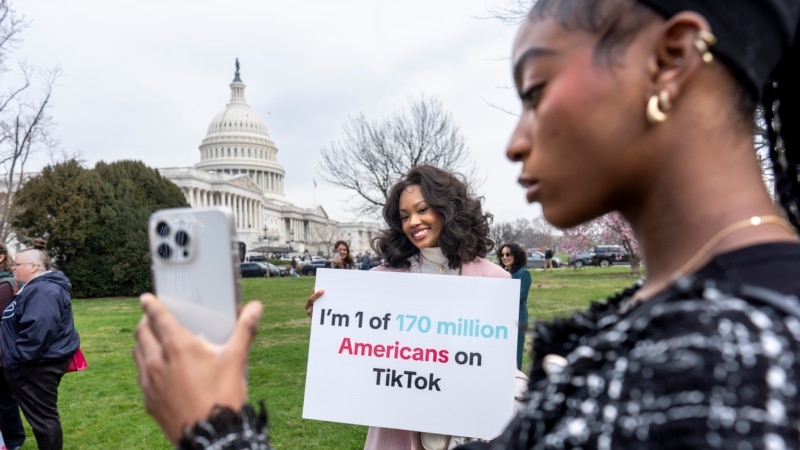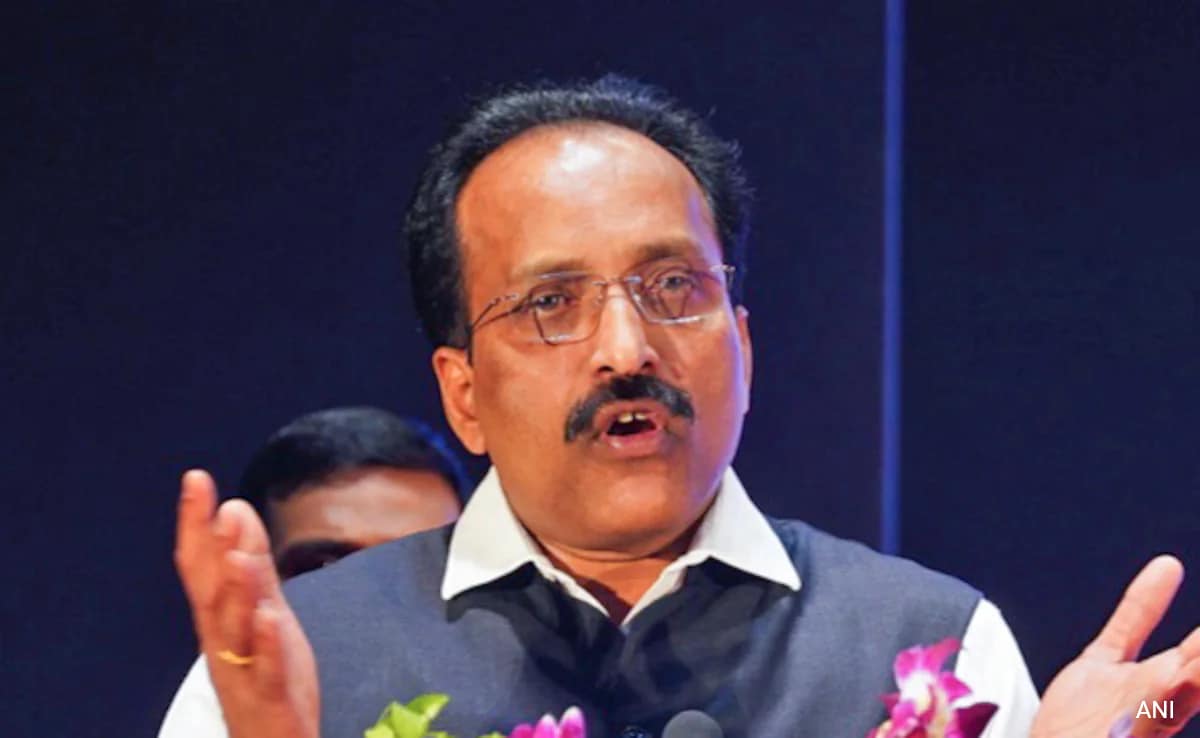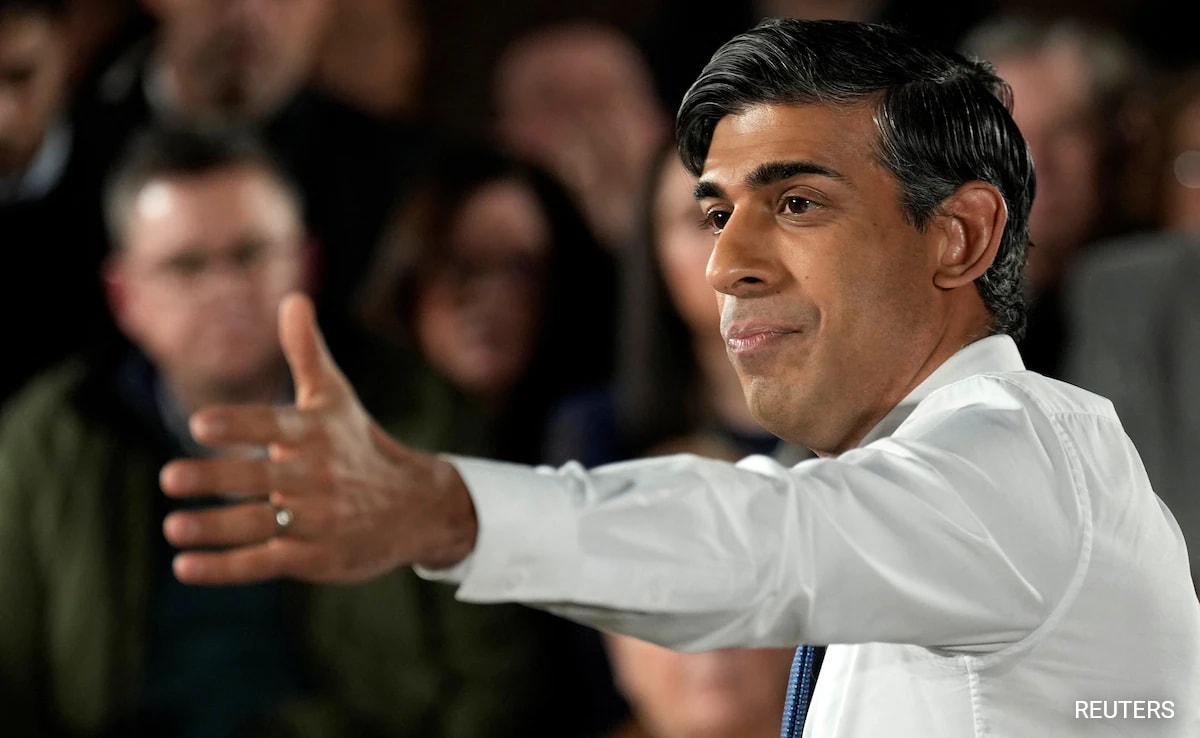
In a message to North Carolina Senator Thom Tillis, the young voice laughed, but the words were full of foreboding.
“Well, listen, if you ban TikTok, I’m going to find you and I’m going to shoot you,” one of them chuckled, speaking over other young voices in the background. “I’m going to shoot you and then find you and cut you into pieces.” Another man threatened to kill Tillis and then take his own life.
Tillis’ office said it has received about 1,000 calls about TikTok since the House passed legislation this month that would ban the app if its Chinese owners don’t sell their shares. TikTok has been urging its users, many of whom are young, to call their representatives and has even provided a simple link to the phone number. When users opened the app, the company popped up a message that read: “The government will take away the communities you and millions of other Americans love.”
Tillis, who supports the House bill, reported the call to police. “What I hate is that it shows the huge influence that social media platforms have on young people,” he said in an interview.
While TikTok’s broad lobbying campaign is more aggressive than most companies, it is the tech industry’s latest attempt to block any new legislation — and it’s a fight the industry usually wins. For years, Congress has failed to act on bills to protect user privacy, protect children from online threats, hold companies more accountable for their content and create loose guardrails around artificial intelligence.
“I mean, it’s almost embarrassing,” said Senate Intelligence Committee Chairman Mark Warner, D-Va. He is a former tech executive who also supports the TikTok bill and has long tried to push colleagues to regulate the industry. “I don’t expect us to have a perfect zero success rate on technology legislation.”
Some see the TikTok bill as the best opportunity yet to regulate the tech industry and set a precedent (if the bill only targets one company). President Joe Biden said he would sign the House bill, which passed an overwhelming 362-65 vote this month after a rare 50-0 committee vote to bring it to a vote.
But it has already hit a roadblock in the Senate, where there is little agreement on the best way to ensure China does not access the private data of the app’s 170 million U.S. users or influence them through its algorithms.
Other factors are also holding up the Senate. The tech industry is broad and falls under the purview of several different committees. Additionally, the issues involved do not fall neatly along party lines, making it harder for lawmakers to agree on priorities and how legislation should be drafted. For example, Senate Commerce Committee Chair Maria Cantwell, D-Wash., has so far been reluctant to embrace the TikTok bill, calling for hearings first and suggesting the Senate might want to rewrite the bill.
“We’re going through a process,” Cantwell said. “It’s important to get things done.”
Warner, on the other hand, said the House bill is the best chance to get something done after years of inaction. He said threatening calls from young people were a good example of why legislation was needed: “This is important, do we really want this kind of information to be manipulated by the Chinese Communist Party?”
Some lawmakers worry that blocking TikTok could anger the millions of young people who use the app and make up a significant part of the electorate in November’s election. But Warner said “the debate has shifted from an outright ban a year ago to a House bill that would force TikTok, a wholly-owned subsidiary of Chinese technology company ByteDance Ltd., to sell its shares in order to keep the app operating.”
Vice President Kamala Harris acknowledged the app’s popularity and that it has become a source of income for many people in a television interview that aired Sunday. She said the government has no intention of banning TikTok but rather dealing with its ownership issue. “We understand its purpose, its utility and the joy it brings to a lot of people,” Harris told ABC’s “This Week.”
Republicans are divided. While most of them support TikTok legislation, others are wary of over-regulation and government targeting of a specific entity.
“The House’s passage of the TikTok ban is not only a misguided excess; it is a draconian measure that stifles free speech, tramples on constitutional rights, and disrupts the economic pursuits of millions of Americans,” said Kentucky Senator Rand Paul posted on X (formerly Twitter).
To convince colleagues to support the bill, Sen. Richard Blumenthal, D-Conn., and Sen. Marsha Blackburn, R-Tenn., called on intelligence agencies to declassify information provided to senators in classified briefings about TikTok and Chinese ownership. Information.
“It is critical that the American people, and TikTok users in particular, understand the national security issues they face,” the senators said in a joint statement.
Blumenthal and Blackburn have been working for years on separate legislation aimed at keeping children safe online, but the Senate has yet to vote on it. Efforts to regulate online privacy have also stalled, as has legislation that would hold tech companies more accountable for the content they publish.
Efforts by Senate Majority Leader Chuck Schumer, D-N.Y., to quickly push legislation to regulate the emerging artificial intelligence industry have yet to bear fruit.
Schumer said little about the TikTok bill or whether he might bring it to the Senate for consideration.
“After the House passes the bill, the Senate will review it,” was all he said after the House passed the bill.
South Dakota Sen. Mike Rounds, who has worked with Schumer on artificial intelligence, said he believes the Senate can eventually pass the TikTok bill, even if it is a different version. He said the confidential briefing “convinced the vast majority of members” that they must address issues of data collection from the app and TikTok’s ability to push misinformation to users.
“I think this is clearly a danger to our country if we don’t take action,” he said. “It doesn’t have to be done in two weeks, but it does have to be done.”
Rounds said he and Schumer are still meeting regularly on artificial intelligence and will release some of their ideas publicly soon. He said he was optimistic the Senate would eventually take action to regulate the tech industry.
“There are some areas that we won’t try to get into, but there are some areas where we have very broad consensus,” Lowndes said.
Tillis said senators may need to continue laying the groundwork for a while and educating colleagues on why some regulations are needed in hopes of passing legislation in the next Congress.
“This can’t be the Wild West,” Tillis said.
Follow us on Google news ,Twitter , and Join Whatsapp Group of thelocalreport.in
















